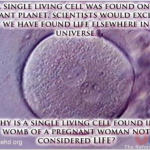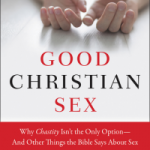I’ve been working through Elizabeth A. Johnson’s She Who Is lately and finding it fascinating and challenging. Much of my journey from fundamentalism so far has been figuring out what I don’t believe about God. Johnson’s book, along with other feminist theology I’ve been reading, is helping me lay some foundation for figuring out what I do believe.
In one section, she talks about a trend that I’ve frequently seen in the many mainline churches I’ve attended over the past 4 or 5 years. God is Father. God is King. God is He. But God is a maternal father. God is a benevolent king. God is a he in touch with his “feminine” side. I’ve been to many more “liberal” Christian churches, yet, with one exception (besides the Unitarian Universalist church I sometimes go to–they’ve got it together in this area), the most inclusive anyone gets when it comes to talking about God in general is describing a “masculine” God who has “feminine” traits.
I like what Johnson has to say about this (on pg. 48-49 of She Who Is):
God persists as ‘him’ but is now spoken about as a more holistic person who has integrated his feminine side . . . Men gain their feminine side, but women do not gain their masculine side (if such categories are even valid). The feminine is there for the enhancement of the male, but not vice-versa. There is no mutual gain.
This image of God as maternal father doesn’t break God out of the box that patriarchy puts on into. It gives men the opportunity to be more fully human, and to see the fullness of their humanity in God. But as Johnson says, there isn’t much mutuality here.
In fact, Johnson even goes so far to say that “the feminine is incorporated in a subordinate way into an overall symbol that remains masculine.” Men can now represent the “whole” of humanity, because they can hold “masculine” and “feminine” traits. They can be strong AND kind. Powerful AND nurturing. Logical AND emotional. After all, isn’t God? Wasn’t Jesus?
Women on the other hand, must continue to fight our way out of the boxes that restrictive gender roles can trap us in without the luxury of being able to point to God and say, “But SHE is . . .” Women don’t get the same affirmation of knowing that when they are strong and powerful and intelligent (traits typically stereotyped as “masculine”) they are still reflecting God’s image.
We need to move beyond the image of God the Maternal Father. It’s not enough.
















